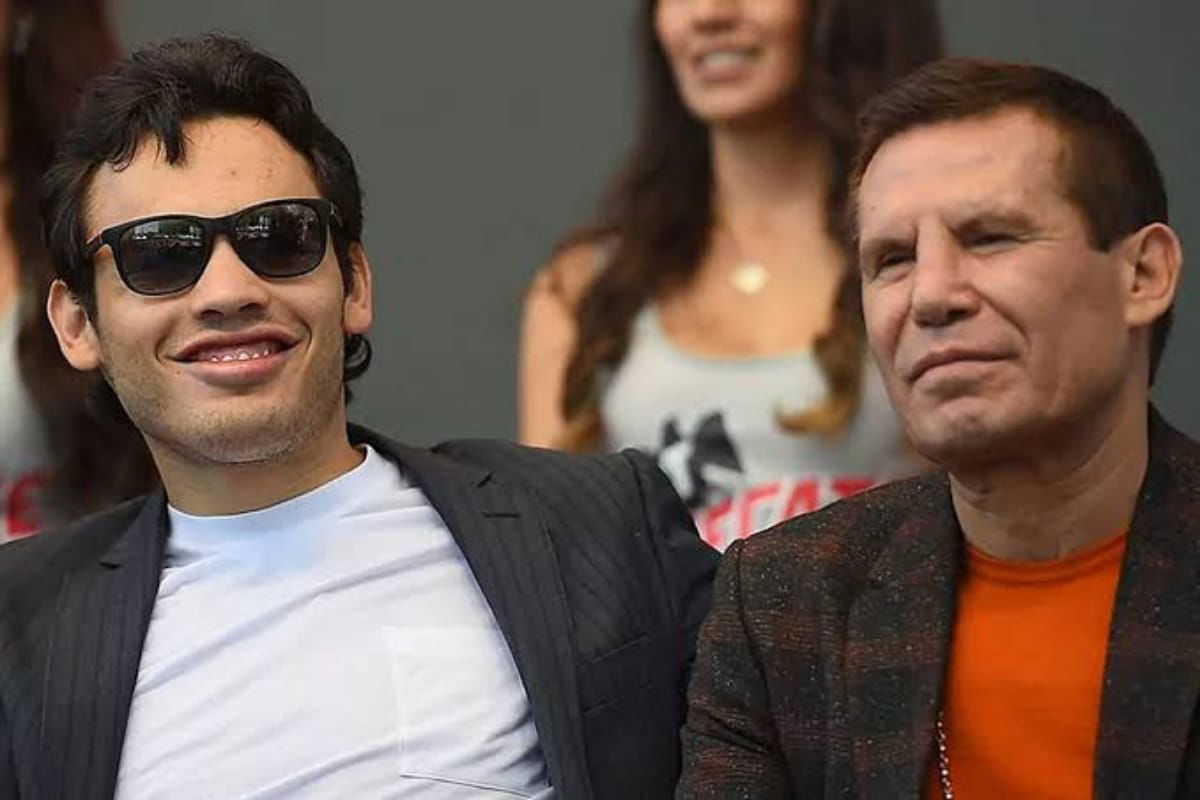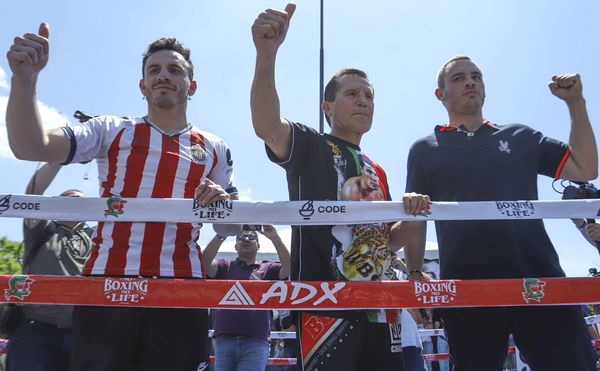

Father–son legacies and legal drama often collide in combat sports. This time, however, the focus shifts from the Raja–Quinton Jackson saga to one of boxing’s most iconic families—Julio César Chávez and his son, Julio Cesar Chavez Jr. Chávez Jr.’s life turned upside down after his June 28 clash with Jake Paul in Anaheim. Only days later, on July 2, U.S. Immigration and Customs Enforcement (ICE) agents arrested him at his Studio City home in Los Angeles, accusing him of making fraudulent statements on a green card application and overstaying his visa. At the same time, Mexican authorities had already pursued the 39-year-old since 2023 over alleged ties to the Sinaloa Cartel in cases involving organized crime and weapons trafficking.
Watch What’s Trending Now!
Despite these charges, Chávez Jr. stayed in the United States. In fact, on December 17, 2024, U.S. Citizenship and Immigration Services labeled him an “egregious public safety threat” and referred his case to ICE, but the previous administration declined to deport him. That changed this summer, when Donald Trump returned to the presidency and adopted a stricter approach to illegal immigration. ICE subsequently deported Chávez Jr. to Mexico, where authorities immediately detained him in Hermosillo, Sonora.
ADVERTISEMENT
Julio César Chávez breaks silence on son’s alleged cartel connections
After being held for days, this past Sunday, a judge ordered his release from custody pending trial, ruling that prosecutors lacked sufficient evidence to keep him behind bars. For now, he cannot leave Mexico as the investigation moves forward. Meanwhile, his father, the legendary three-division world champion, stepped in to defend him. On August 27, Julio César Chávez rejected the allegations and framed them as consequences of his son’s well-documented struggles with addiction.
ADVERTISEMENT

Imago
EUM20210615DEP07.JPG GUADALAJARA, Jal. Boxing/Boxeo-Chavez.- 15 de junio de 2021. Aspectos del entrenamiento publico de los boxeadores Julio CÃ sar Chavez, Omar Chavez, Julio Cesar Chavez Jr., Anderson Silva y Ramon El inocente Ãlvarez en la plaza Liberacion en el Centro de Guadalajara, Jalisco, previo a la pelea de exhibicion de Dinastia Chavez . Foto: Agencia EL UNIVERSAL/EELG EDITORIAL USE ONLY PUBLICATIONxNOTxINxMEX Copyright: xx x universalpix525728
“My son is fine, thank God. He doesn’t belong to a cartel or traffic in weapons. He’s my son, and these are the consequences of how badly he was addicted and how he talked nonsense,” Chávez Sr said firmly. “Even if they call him a criminal, that will all be cleared up very soon.”
ADVERTISEMENT
Julio César Chávez reunited with his son at the Coliseo Boxing Club in Hermosillo after his release — a scene quickly captured on camera and amplified across social media. But while the images painted a picture of family solidarity, the reality surrounding Julio César Chávez Jr. looks far more serious.
As the former champion awaits trial, the controversy has deepened, with his wife, Frida Muñoz, also pulled into the spotlight. Muñoz is the mother of a granddaughter of Joaquín “El Chapo” Guzmán, the former head of the Sinaloa Cartel, a connection that only fuels the scrutiny on the embattled boxer.
ADVERTISEMENT
Chávez Jr. explains how Julio César Chávez Sr.’s past shaped his motivation
Born into the empire his father built, Julio César Chávez Jr. never had the luxury of anonymity. The son of a man with more than 100 professional wins and three division world titles, he carried a legacy that was both a blessing and a burden. Every step inside the ring came with the shadow of expectation—and the fear of becoming yet another son who couldn’t live up to a legend.
ADVERTISEMENT
For Chávez Jr., that shadow carried complications. His father stood as both a national hero and a man battling demons. In a 2020 interview with Alex Montiel on YouTube, Chávez Jr. described the chaos of growing up through his father’s addiction—a fight every bit as brutal as the ones inside the ring.
“My family and I went through a very difficult time during the 15 years of my dad’s addiction. It was horrible, with blows, and a lot of things that happened that felt bad,” he admitted. But the story didn’t end in despair. Boxing, ironically, became the glue that brought father and son back together. “That’s why I started boxing, and thanks to the fact that I boxed at 21, my dad was motivated by my career because he saw I could be a world champion, and that’s when he decided to quit drugs,” said the former WBC middleweight champion.
ADVERTISEMENT
Today, however, a new fight looms outside the ring. With Julio Cesar Chavez Jr.’s trial still pending, the spotlight extends beyond his own fate, casting long shadows over the legacy of his father as well. Whether Chávez Jr. can overcome this latest chapter and stage a return to boxing remains uncertain. For now, all eyes are on the courtroom—and the family name that hangs in the balance.
ADVERTISEMENT
ADVERTISEMENT
ADVERTISEMENT